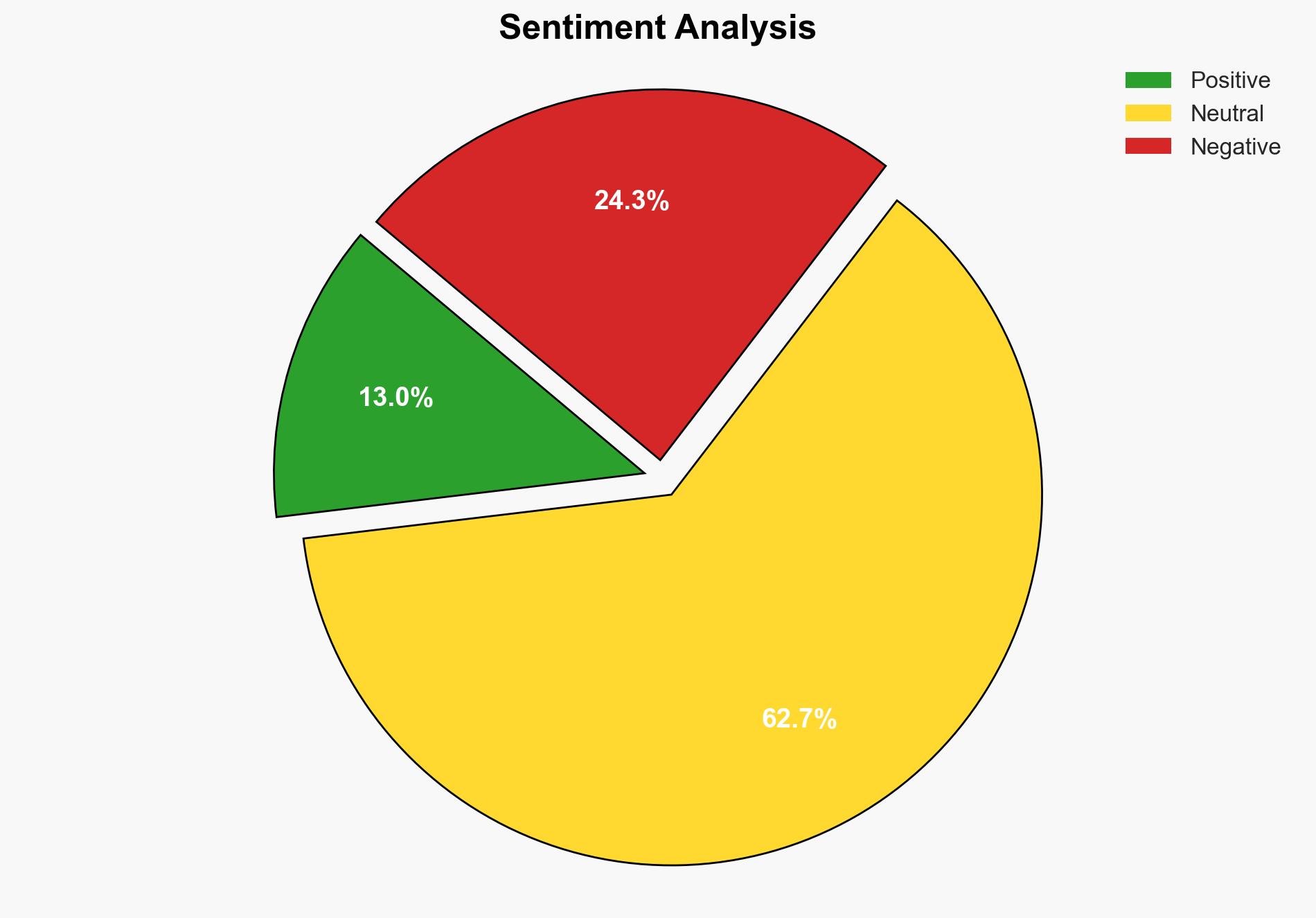Trump Rushes Deportations Using a Wartime Law With a Shameful History – The Intercept
Published on: 2025-03-16
Intelligence Report: Trump Rushes Deportations Using a Wartime Law With a Shameful History – The Intercept
1. BLUF (Bottom Line Up Front)
The United States government, under the direction of Donald Trump, has invoked the Alien Enemy Act to expedite the detention and deportation of Venezuelan migrants suspected of gang affiliations. This unprecedented use of wartime authority in peacetime immigration enforcement has been temporarily blocked by a federal judge. The action raises significant legal and ethical concerns, with implications for U.S. immigration policy and international relations.
2. Detailed Analysis
The following structured analytic techniques have been applied for this analysis:
General Analysis
The invocation of the Alien Enemy Act by Donald Trump targets Venezuelan migrants allegedly linked to the Tren de Aragua gang. This move is framed as a national security measure, treating these individuals as wartime enemies. Historically, the Act has been associated with controversial actions, such as the internment of Japanese Americans during World War II. The current application bypasses standard immigration procedures, raising concerns about due process and potential human rights violations.
3. Implications and Strategic Risks
The use of the Alien Enemy Act in this context poses several risks:
- National Security: The broad application of wartime powers in immigration could set a precedent for future administrations, potentially leading to abuses of power.
- Regional Stability: The deportation of individuals to Venezuela, where they may face persecution, could exacerbate tensions between the U.S. and Venezuelan governments.
- Economic Interests: The policy may affect U.S. relations with Latin American countries, impacting trade and diplomatic efforts.
4. Recommendations and Outlook
Recommendations:
- Review and potentially revise the legal framework governing the use of the Alien Enemy Act to ensure it aligns with contemporary human rights standards.
- Enhance oversight mechanisms to prevent the misuse of wartime authorities in immigration enforcement.
- Engage in diplomatic dialogue with Venezuelan authorities to address underlying issues contributing to migration.
Outlook:
Best-case scenario: Legal challenges lead to a reevaluation of the policy, resulting in more humane immigration practices.
Worst-case scenario: Continued enforcement of the policy leads to international condemnation and deteriorating U.S.-Venezuela relations.
Most likely outcome: Ongoing legal battles and public scrutiny prompt incremental policy adjustments.
5. Key Individuals and Entities
The report mentions significant individuals and organizations:
- Donald Trump
- Katherine Ebright
- James Boasberg
- Lee Gelernt
- American Civil Liberties Union (ACLU)
- Brennan Center for Justice





